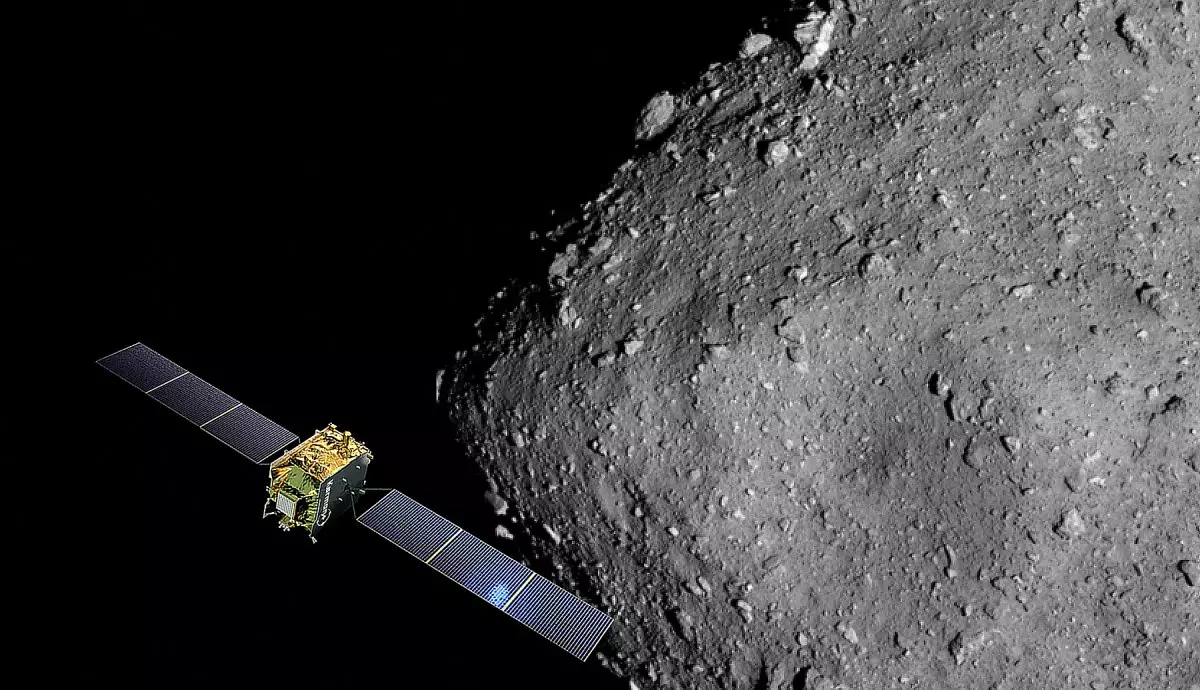As the realm of technology continually expands, investors are increasingly venturing beyond traditional markets to explore the ambitious universe of space startups. One of the most intriguing entrants into this field is Karman+, a startup that has embarked on an audacious mission: to develop autonomous spacecraft capable of traveling to asteroids for resource extraction. Recently, the company secured $20 million in seed funding to advance its hardware and software development, marking a significant step towards making its lofty goals a reality. Karman+ aims to pioneer a new era of space economics by potentially tapping into the vast resources available in asteroids, a concept that, until now, has predominantly dwelled in the domain of science fiction.
Karman+ has set its sights on mining asteroids for crucial materials, starting with the extraction of water from regolith—the material that comprises the surface of these celestial bodies. The water obtained could serve as a vital refueling resource for space tugs and rehabilitating aging satellites in Earth’s orbit. This is not merely an exercise in speculation; the company envisions establishing a comprehensive ecosystem for space manufacturing that could both complement and alleviate resource pressures on Earth.
The notion of asteroid mining has garnered the interest of many, particularly after it was prominently featured in literary works such as Kim Stanley Robinson’s “2312.” However, Karman+ believes that technological advancements in robotics and autonomous systems bring them closer to achieving what many deem impossible. They have calculated that missions could be executed for approximately $10 million—an astonishing reduction from the billions typically associated with past asteroid exploration missions. Karman+ anticipates initiating its first venture as early as 2027.
Founded by CEO Teun van den Dries and co-founder Daynan Crull, Karman+ is rooted in a rich background of entrepreneurship and technology. Van den Dries, who previously achieved success with a real estate data company, underwent a transformation after its acquisition in 2022. Citing a passion for science fiction and a desire to have a substantial impact, he shifted his focus to the under-explored frontier of space. Along with Crull, who possesses expertise in data science, the duo is committed to addressing the substantial challenges associated with space resource extraction.
Their business model hinges not only on tapping into asteroid resources but also on the comparative ease of access to these materials. As outlined by van den Dries, asteroids offer a more viable option than the Moon or Earth-based launches, allowing for more efficient procurement of necessary resources without incurring prohibitive costs. If successful, Karman+ could catalyze a sustainable cycle of resource utilization in space, revolutionizing how we approach extraterrestrial exploration.
However, Karman+ is not alone in its quest; competitors like AstroForge are also exploring asteroid mining, underlining the urgency and excitement surrounding this sector. Nevertheless, the obstacles are substantial. As ambitious as Karman+’s plans are, numerous variables must align to facilitate success in their endeavors. The company’s spacecraft is still in development, and rigorous testing is essential before any actual missions can be launched. Past missions have shown that exploring asteroids comes with formidable challenges, and Karman+ aims to conquer those hurdles while achieving cost-effective solutions.
Moreover, the dynamics of asteroids themselves complicate resource extraction efforts. Not only are these targets sporadically positioned millions of miles away, but their movement adds an additional layer of complexity. A successful mission would require precise calculations and unprecedented execution—factors that have historically made asteroid exploration a daunting task.
In light of the various challenges, it is intriguing to note that skepticism has emerged as both a guiding force and a source of confidence for Karman+. Investors like Sten Tamkivi from Plural have voiced the importance of maintaining a realistic outlook throughout the development process. This pragmatic approach contrasts sharply with the culture often observed in software startups, where rapid iterations are common, and issues are frequently addressed reactively.
In the astronomical sphere, Karman+’s mission hinges upon meticulous planning and thorough analysis, which play crucial roles in assessing the feasibility of its objectives. The road to realizing their ambitions will undoubtedly be steep and fraught with uncertainty, but armed with a vision rooted in realistic evaluations, Karman+ stands poised to navigate the cosmos, opening up a new chapter in the story of space exploration and economics.
As Karman+ and other similar startups continue to push the boundaries of what is possible, we can only anticipate the unfolding future—one where humanity may finally harness the riches of the stars.

